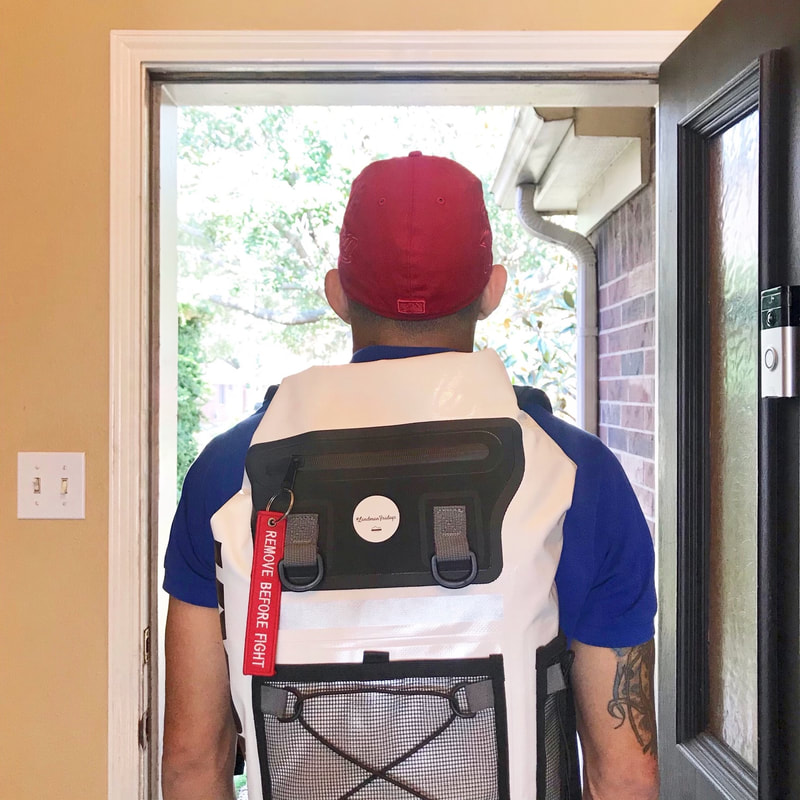|
Guardianships and powers of attorney are somewhat similar in that they allow someone else to sign documents on behalf of another, but there are some key differences between them that you should keep in mind. Most importantly, a guardian is appointed by the court for someone who lacks the legal capacity to enter into a binding agreement (among other things), while a power of attorney is a document by which someone voluntarily allows another to make certain decisions on their behalf.
When running title, if you find a document by which the mineral owner’s attorney-in-fact conveyed an interest, you should also include in your abstract the power of attorney by which he/she received the authority to do so. On the leasing side of things, if your lease or other agreement was signed by an attorney-in-fact, then you should make sure the power of attorney is filed in the county where the land is located. If it was not recorded there, it is a good practice to request the POA and record it yourself before recording the lease. As always however, first check with your manager, in order to find out how your company/client would like you to proceed in that situation. When it comes to title, true beauty is in the completeness, accuracy, and clarity of the information contained in your abstract. That said, formatting issues, spelling/grammar errors, and other “superficial” problems can certainly detract from the overall beauty of your work and make you seem less professional. Here are my top 3 tips to keep your title looking good:
Abraham Lincoln is often credited with having said, “Give me six hours to chop down a tree and I will spend the first four sharpening the axe.” Creating an efficient and productive process requires an upfront investment of time. Exactly how much time depends on the complexity of the process you want to streamline. A lot of people choose to forego that initial planning however, thinking it will be quicker to just get by with whatever seems easiest at the time. That may not sound like a big deal, but those small inefficiencies build up and can cause major problems down the road.
Think about where you feel stressed or disorganized in your work (or in your life in general). That friction is probably indicative of an inefficient process. Take a little time out this weekend to streamline it or work on finding a better solution. You will be glad you did! Being able to clearly communicate information through reports, letters, and emails is a necessary part of the job of a landman. Here are some things to focus on when trying to improve your skills:
Recently, my family and I worked together on a puzzle. While we began putting it together, I thought about our process. First we made sure that each piece was right-side-up, then we looked for all the edge pieces and put them together, and finally we started grouping pieces with similar colors together. We were able to take something complicated and break it down into smaller, more manageable steps.
Sometimes when you have a big project in front of you, you can feel that same sense of being overwhelmed. I have often found that if you break everything down into individual tasks, it makes it a lot easier to get started. For example, I know landmen that have gotten very stressed about determining heirship for a large family tree. Although it takes more time, it really shouldn’t be any more difficult than heirship for a small family tree. It is just a matter of organization: break it down branch by branch. My recommendation is the following: spend some time coming up with a set process for the work that you do; it shouldn’t be done differently each time in a haphazard manner. Then, before beginning a new project, take a few minutes to think about the tasks that the project will require and the time you will need for each one. Finally, you will be ready to jump in and get started in accordance with your plan. You may find that you need to tweak it a bit as you go, but you will eventually find what works for you. Recently, I was watching an episode of a show that started off with two men approaching a landowner and attempting to purchase his property from him. In their negotiations, they offered him a price much lower than what the land was actually worth, purposefully failing to mention the valuable salt mine under the land (which they knew about, but the landowner didn’t).
It made me think about the AAPL Code of Ethics and Standards of Practice. Section 1 of the Code of Ethics specifically states “It shall be the duty of the Land Professional at all times to promote and, in a fair and honest manner, represent the industry to the public at large with the view of establishing and maintaining goodwill between the industry and the public and among industry parties. The Land Professional, in his dealings with landowners, industry parties and others outside the industry, shall conduct himself in a manner consistent with fairness and honesty, such as to maintain the respect of the public.” The landmen in the show clearly violated this section, as well as Standard of Practice #2, which states “It is the duty of the land professional to protect the members of the public with whom he deals against fraud, misrepresentation, and unethical practices. He shall eliminate any practices which could be damaging to the public or bring discredit to the petroleum, mining or environmental industries”. At the end of the episode, it was revealed that one of the two landmen was the notorious Judas Iscariot, of Biblical fame. Although the representation of Judas as an unethical landman wasn’t based on an actual historic events, the association wasn’t a positive one for our profession. Thus, it inspired me to make my yearly public service announcement reminding everyone to brush up on their ethics knowledge. If you need some ideas on how to go about doing that, I have provided some resources below. You can find my presentation from day 2 of the 2019 Appalachian Land Institute here on “Landmen Behaving Badly: What Not To Do”. You can find my Ethics presentation from the 2021 Appalachian Land Institute here. Finally, you can read more about the AAPL Code of Ethics and Standards of Practice here. You should definitely include a cover letter when applying for a landman job. If you send an email to a hiring manager, I recommend using it as the body of your email. If you apply online through an applicant portal, upload it is an attachment if you are able to do so. The letter should explain the type of land work you excel in, as well as provide concrete examples of your accomplishments. You should also include why you want to work for that specific company and why you would be a good fit both for the company and the position. Address your letter to the hiring manager, or if you don’t know his/her name, address it to the company (don’t use “Dear Hiring Manager”). It should be tailored for the company/position, as opposed to just a generic form letter that you send out to everyone. I have found that oftentimes landmen don’t send cover letters (even when specifically requested), so by including one, you can demonstrate your professionalism and attention to detail, and stand out head and shoulders above the rest. Good luck on your job search!
Probates and intestate succession are some of my favorite topics when it comes to title. Compared to documents that you can find of record in the recorder’s office, they can also make it a little more complicated. Let’s start with the basics.
Ask Yourself The Following Questions: 1. Did the decedent have a probate filed in the county where the property is located? If so, get a copy of it and skip to question #5. 2. If not, what is your client/employer’s policy for requesting probates outside of the county you are working in? Follow their instructions. 3. In what other counties may the decedent have filed his/her probate? In accordance with the instructions above, check for it there, if applicable. If you find it, request a copy and skip to question #5. 4. If there is no probate of record, what year did the decedent die and what were the laws of intestate succession at the time of his/her death? Research the decedent’s heirs and credit the interest according to the relevant law at the time of the decedent’s death. Continue running title. 5. Were there any cases in which the decedent’s will was found to be invalid or overturned and if so, what was the court’s final determination? Credit the interest in accordance with the final judgment. Continue running title. 6. Otherwise, to whom did the decedent leave the property in his/her will? Credit the interest to him/her. Continue running title. 7. If there was not a specific devise, to whom did the decedent leave “all rest residue and remainder? Credit the interest to him/her. Continue running title. Dower is an antiquated concept by which a wife receives certain rights to her husband’s property following his death (usually a 1/3 or ½ life estate interest). A husband’s interest in his wife’s estate is often called curtesy, and the same concept would apply. Only a few states still recognize dower and/or curtesy (for example, Ohio).
If you are in a state that recognizes dower rights, that means that both spouses need to sign any leases, even if the property was conveyed to only one of them. Additionally, a spouse should release his/her dower/curtesy interest when the property owner executes a deed. Even if you are not in a state that currently recognizes dower, you may come across it when determining heirship based on earlier versions of intestate succession laws, so it is important to be familiar with the concept. Foreign probates are those which are filed in a state other than that in which the real property lies. They create a problem because those probate courts don’t have any jurisdiction over the property located in the state in which you are working.
If your employer/client asks you to cure title that involves foreign probates, it will generally involve recording authenticated/certified/exemplified copies of the foreign probate proceedings in the county where the property lies. The exact process varies from state to state, so, as always, make sure to familiarize yourself with the specific requirements of your state. If a decedent died intestate, then an affidavit of heirship is the document that you need. |









